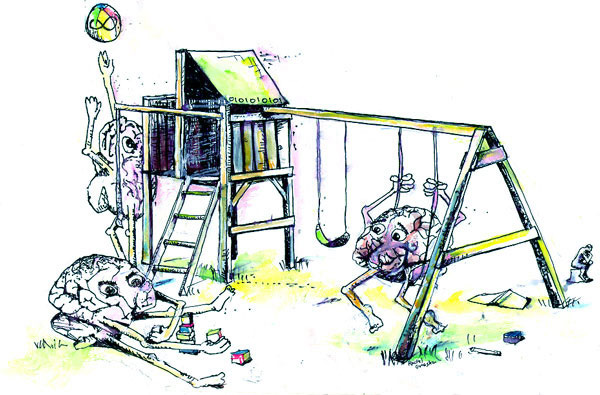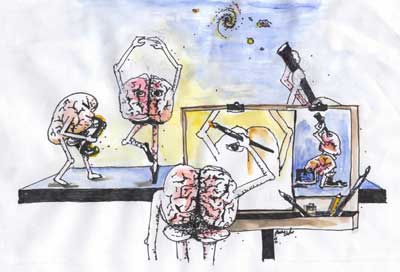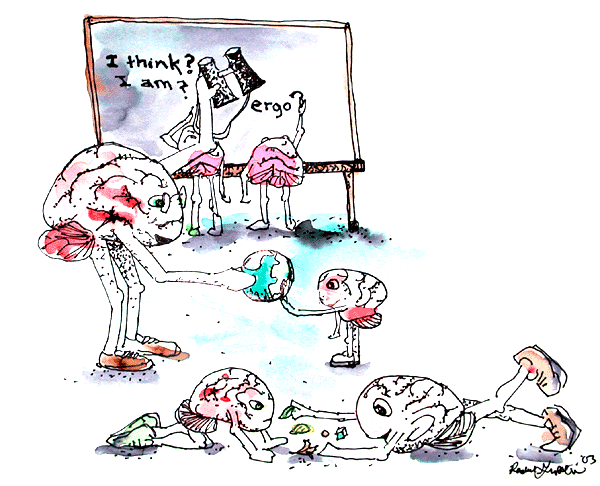


|
Introductory meeting 7-9 pm, Wednesday, 15 November in Campus Center 200
This working group is open to everyone interested in elementary science education, science education, and education generally. For further information contact
|

|
 |
 |
| Images by Rachel Grobstein |
The content dominated approach to science education actually significantly misrepresents the activity of science itself, which is primarily driven not by finding answers but by treating all existing answers with skepticism and using them to motivate new inquiries and new ways of thinking about the world and one's place in it.